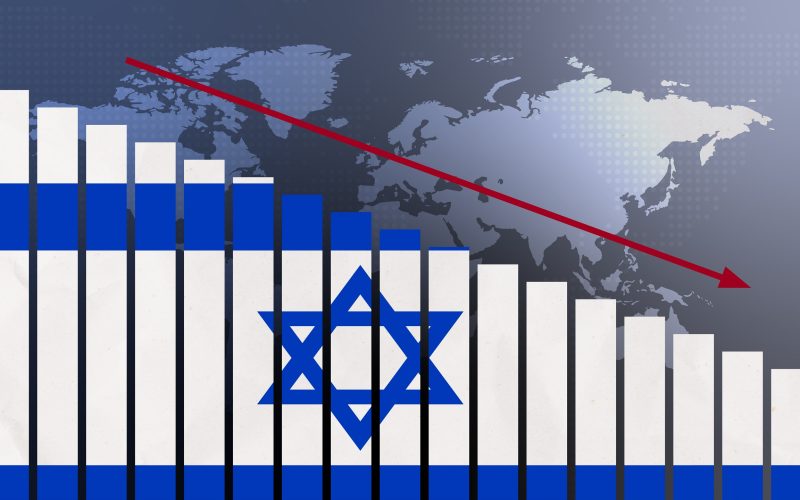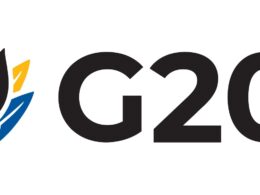Israel, known for its resilient economy, now faces one of the greatest tests of its financial and structural strength as it struggles with a war that seems to be expanding across multiple fronts. With its finance minister, Bezalel Smotrich, reassuring citizens that the economy remains strong, doubts loom over how long this resilience can hold amid spiraling costs and sustained conflict.
The most recent turning point came when Israeli airstrikes in late September killed Hezbollah’s leader, Hassan Nasrallah, in Beirut. This action escalated tensions, especially with Hezbollah, pushing Israel into further military engagement in Lebanon and Gaza. The nation’s war footing is not just a military reality, but also an economic one, straining its fiscal foundation.
Economic Impact of Expanding Conflict
Before the Israel-Hamas conflict flared up in October of last year, Israel’s economy was forecasted to grow by a solid 3.4%, a reflection of its global competitiveness in sectors like technology and defense. But as conflict intensifies, these projections have dropped significantly. The current estimates suggest growth may fall as low as 1%, with some projections hinting at a possible contraction.
War is expensive, and for Israel, this conflict is proving to be the most financially draining in its history. The cost to the government is already steep: an estimated $66 billion by the end of next year, amounting to about 12% of the country’s GDP. These funds are being funneled into military spending, sheltering displaced Israelis, and emergency civilian expenses. As cross-border skirmishes with Hezbollah intensify and Israel launches ground incursions into Lebanon, the financial toll is only expected to worsen.
Short-Term Versus Long-Term Economic Outlook
Although Israel’s central bank is keeping interest rates high to combat rising inflation, the war-driven spike in government spending threatens to exacerbate the financial burden. Military expenditures are rapidly ballooning, and the economy may be at risk of stagnation if this heavy investment in defense continues unchecked. Cuts in non-defense public spending, such as infrastructure and social welfare, are looming threats, and they could severely hinder Israel’s long-term economic prospects.
Economists and financial analysts are increasingly concerned that this war may inflict long-lasting damage on Israel’s economy, far beyond the conflict’s immediate aftermath.
The Risk of a Lost Decade
Historical parallels are being drawn between the current crisis and the aftermath of the 1973 Yom Kippur War, which left Israel in a prolonged period of economic stagnation. After that conflict, Israel significantly increased its defense budget, leading to a “lost decade” of economic stagnation. There are fears that the current war may lead to a similar outcome.
According to the Institute for National Security Studies (INSS) at Tel Aviv University, even a swift conclusion to hostilities would leave Israel in a weaker economic position than it was prior to the war. The researchers warn that defense spending could become a permanent fiscal burden, crowding out investments in vital sectors like education, technology, and healthcare. This would slow down economic growth, reduce living standards, and widen the budget deficit.
The budget deficit has already doubled from 4% to 8% of GDP, with government borrowing becoming increasingly costly due to multiple downgrades in Israel’s credit rating by Fitch, Moody’s, and S&P. Investor confidence has been shaken, leading to higher interest rates on Israeli bonds and making it more expensive for the government to finance its debt. Prolonged conflict could see the deficit balloon further, putting immense pressure on Israel’s fiscal stability.

Potential Exodus of High-Skilled Workers
A significant risk that looms over Israel’s economy is the potential exodus of highly skilled workers, particularly from the tech sector, which accounts for around 20% of the country’s GDP. As the conflict drags on, the heightened sense of insecurity, combined with rising taxes and reduced public spending on non-defense sectors, may push Israel’s brightest minds to seek safer and more stable environments abroad. This “brain drain” could severely weaken Israel’s innovative edge, with even a small outflow of top talent potentially crippling the tech industry, which has long been a cornerstone of Israel’s economic success.
The tech sector is particularly vulnerable to such a loss, as it is driven by a relatively small number of highly creative and entrepreneurial individuals. If these individuals leave, the ripple effects could be devastating, reducing the overall productivity of the economy and leading to a collapse in foreign investment, further compounding Israel’s economic troubles.
A Shrinking GDP and Falling Living Standards
While Israel’s population continues to grow, its economy may struggle to keep pace, leading to a drop in GDP per capita, which has been one of Israel’s strong suits in recent years. The country’s GDP per head, which had overtaken that of the United Kingdom in recent years, is now expected to fall. With living standards declining, the socio-economic fabric of Israel could fray, putting pressure on public services and eroding the quality of life for ordinary citizens.
Moreover, should the war escalate into full-blown regional conflict involving Iran and other proxies, the cost could soar even higher. Analysts warn that in a worst-case scenario, Israel’s GDP could contract by as much as 10%, plunging the country into a severe recession that would be reminiscent of the economic hardships following the Yom Kippur War.
Uncertainty as the Biggest Obstacle
The pervasive uncertainty surrounding the duration of the war has become one of the most significant threats to Israel’s economic stability. As the conflict drags on, businesses are collapsing, and investments are drying up, making it difficult for the government to rely on a steady stream of tax revenue. Many companies are hesitant to invest, unsure of how long the war will last and what the future holds for the country.
Coface BDi, a leading business analytics firm in Israel, projects that 60,000 Israeli companies will shut their doors this year — a steep increase from the usual 40,000 annual closures. These firms, predominantly small businesses with fewer than five employees, form the backbone of Israel’s economy, and their collapse signals wider systemic challenges.
“Uncertainty is terrible for the economy and for investment,” said Avi Hasson, CEO of Startup Nation Central, a non-profit that supports Israel’s tech industry globally. In a recent report, Hasson warned that while Israel’s tech sector has demonstrated resilience, this will not be sustainable if the conflict continues and if the government persists with its current economic policies, which he described as “destructive.”
The Tech Sector’s Struggles
Before the Hamas attack on October 7, Israel’s government had already caused unease within the tech sector due to its plans to weaken the judiciary. This led many tech firms to consider incorporating overseas, particularly in the United States. The uncertainty brought by the war has only accelerated this trend, with new tech companies increasingly opting to incorporate abroad, despite local tax incentives. Many firms are also contemplating relocating parts of their operations outside of Israel.
While Hasson remains optimistic about the sector’s ability to attract investment, he emphasizes that the industry’s future growth depends heavily on regional stability and sound government policies. Without these, Israel’s tech industry could face significant setbacks, impacting a vital contributor to the nation’s economic output.
Hard-Hit Sectors: Agriculture, Construction, and Tourism
While the tech sector has managed to weather the storm thus far, other industries have been hit much harder. Agriculture and construction, two essential sectors, have struggled with labor shortages since the suspension of work permits for Palestinian workers following last year’s escalation. This has driven up prices for fresh produce and caused a sharp drop in housing construction, further straining the economy.
The tourism industry, another critical pillar of Israel’s economy, has also taken a significant hit. The sharp decline in foreign visitors has cost the sector 18.7 billion shekels ($4.9 billion) in lost revenue since the conflict began, according to the Israeli tourism ministry. Hotels across the country, like The Norman in Tel Aviv, have been forced to lay off staff, slash prices, and close facilities to cut costs. Occupancy levels have dropped drastically, with the hotel’s general manager, Yaron Liberman, reporting that rates have fallen from over 80% before the war to under 50% currently.
“We know that when the war ends, business will return in full force,” Liberman , citing interest from international travelers eager to visit but unable to make arrangements due to travel insurance issues and flight disruptions. However, until peace is restored, the uncertainty surrounding the conflict remains the biggest obstacle. “When is the war going to end?” Liberman asked — a question that haunts businesses across Israel as they await clarity on the future.
The lingering uncertainty leaves Israel’s economy teetering, as critical sectors struggle to keep pace, investors hesitate, and businesses large and small face unprecedented challenges.
Snapshot
Israel’s finance minister, Bezalel Smotrich, remains optimistic, stating that Israel’s economy will bounce back once the war ends. However, economists are less certain. The long-term costs of the war — both financial and human — may leave scars that outlast the conflict itself. While Israel’s economy is resilient in the short term, buoyed by a history of innovation and foreign investment, the widening war presents grave challenges.
If Israel continues to engage in high-intensity warfare on multiple fronts, the mounting defense expenditures, potential brain drain, and decline in living standards may make recovery a far more difficult task. The war is not just a military fight — it is a battle for the future of Israel’s economy, and the outcome is far from certain. The country’s ability to steer through this unprecedented period will determine whether it emerges weakened or resilient, but the risks of an economic collapse are growing with each passing day of conflict.









